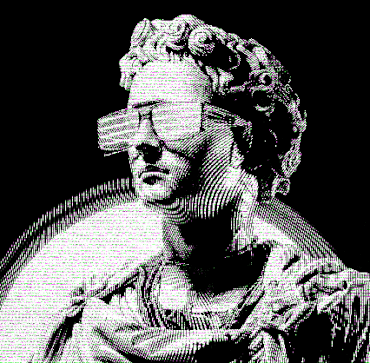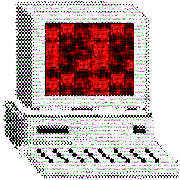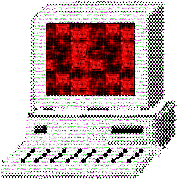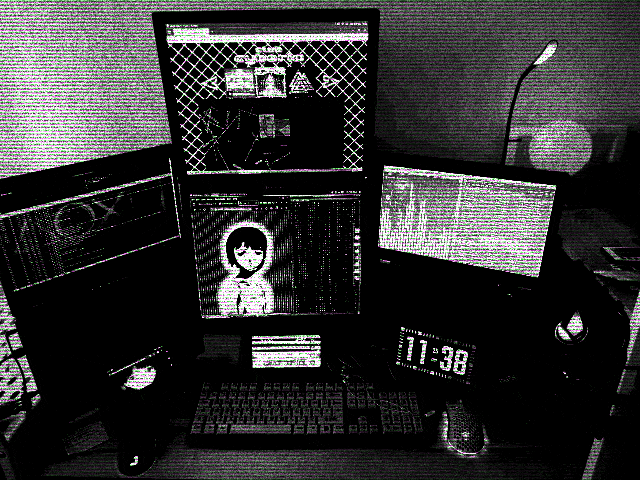'About Me'

|
[ENG]
Simone was born in the hum of modems, when the Web was raw and authentic.
Raised among pixels, forums, and HTML pages written late at night, he witnessed the Internet grow less free, more controlled, less human. They say he is stubborn. He lives on memories, on pixelated nostalgia, cherishing a Web that felt real and personal. He collects machines that the market
|
deemed obsolete, installing Linux as a quiet protest against the decay of planned obsolescence.
They say he is stubborn. He lives on memories, on pixelated nostalgia, cherishing a Web that felt real and personal. He collects machines that the market deemed obsolete, installing Linux as a quiet protest against the decay of planned obsolescence.
Sometimes he feels out of sync. Too analog for a future that devours its own present. And yet, he continues to build, he continues to create.
The old Internet was a frontier. A place where passion guided creation, not algorithms or ad revenue. Then came the social networks. Since 2008, the Web shifted: content became fleeting, personal data plundered, public opinion manipulated, ads increasingly intrusive, dopamine-driven hooks designed to trap attention. Every program became a “service,” every tool a subscription.
Small sites, rich forums, authentic guides they vanished, replaced by scattered groups, endless feeds, and algorithmic tyranny. Knowledge became buried under sponsored content, referral links, and video essays that could have been summarized in a few lines. Genuine reviews died, replaced by promotion and obligation.
Human connection frayed. Relationships warped. Every generation is reshaped by these systems. The old Web, anonymous and raw, was precious. Ideas circulated freely. There were challenges to enter: technological, requiring a computer and a modem; competence, demanding understanding; and social, as most people considered computers irrelevant or nerdy. These barriers fostered merit, not mass mediocrity.
Now, anyone can enter, say, and do anything without consequence. Rules are seen as censorship. The world is flatter, but emptier.
The real Web is not dead. It is hidden. He knows it. He will always be there.
[ITA]
Simone è nato nel rumore dei modem, quando il Web era grezzo e autentico.
Cresciuto tra pixel, forum e pagine HTML scritte di notte, ha visto Internet diventare meno libero, più controllato, meno umano.
Dicono che sia testardo. Vive di ricordi, di nostalgia pixellata, amando un Web che sembrava vero e personale. Colleziona macchine che il mercato considerava obsolete, installando Linux come protesta silenziosa contro il decadimento dell’obsolescenza programmata.
A volte si sente fuori tempo. Troppo analogico per un futuro che divora il suo stesso presente. Eppure continua a costruire, continua a creare.
Il vecchio Internet era una frontiera. Un luogo in cui la passione guidava la creazione, non algoritmi o ricavi pubblicitari. Poi arrivarono i social network. Dal 2008 in poi il Web cambiò: i contenuti divennero effimeri, i dati personali saccheggiati, l’opinione pubblica manipolata, la pubblicità sempre più aggressiva, trappole dopaminiche progettate per catturare l’attenzione. Ogni software divenne un “servizio”, ogni strumento un abbonamento.
I piccoli siti, i forum ricchi di competenza, le guide autentiche sono scomparsi, sostituiti da gruppi sparsi, feed infiniti e tirannia algoritmica. La conoscenza si è sepolta sotto contenuti sponsorizzati, link referral e video lunghi che potevano essere riassunti in poche righe. Le recensioni genuine sono morte, sostituite da promozione e obbligo.
I rapporti umani si sono sfaldati. Le relazioni si sono deformate. Ogni generazione viene rimodellata da questi sistemi. Il vecchio Web, anonimo e crudo, era prezioso. Le idee circolavano liberamente. Esistevano barriere all’ingresso: tecnologica, richiedendo un computer e un modem; di competenza, richiedendo conoscenza; e sociale, perché la maggior parte considerava i computer irrilevanti o da nerd. Queste barriere favorivano il merito, non la mediocrità di massa.
Ora chiunque può entrare, dire e fare ciò che vuole senza conseguenze. Le regole vengono viste come censura. Il mondo è più piatto, ma più vuoto.
Il Web reale non è morto. È nascosto. Lui lo conosce. Lui ci sarà sempre.
⊲⊲⊲ go back






